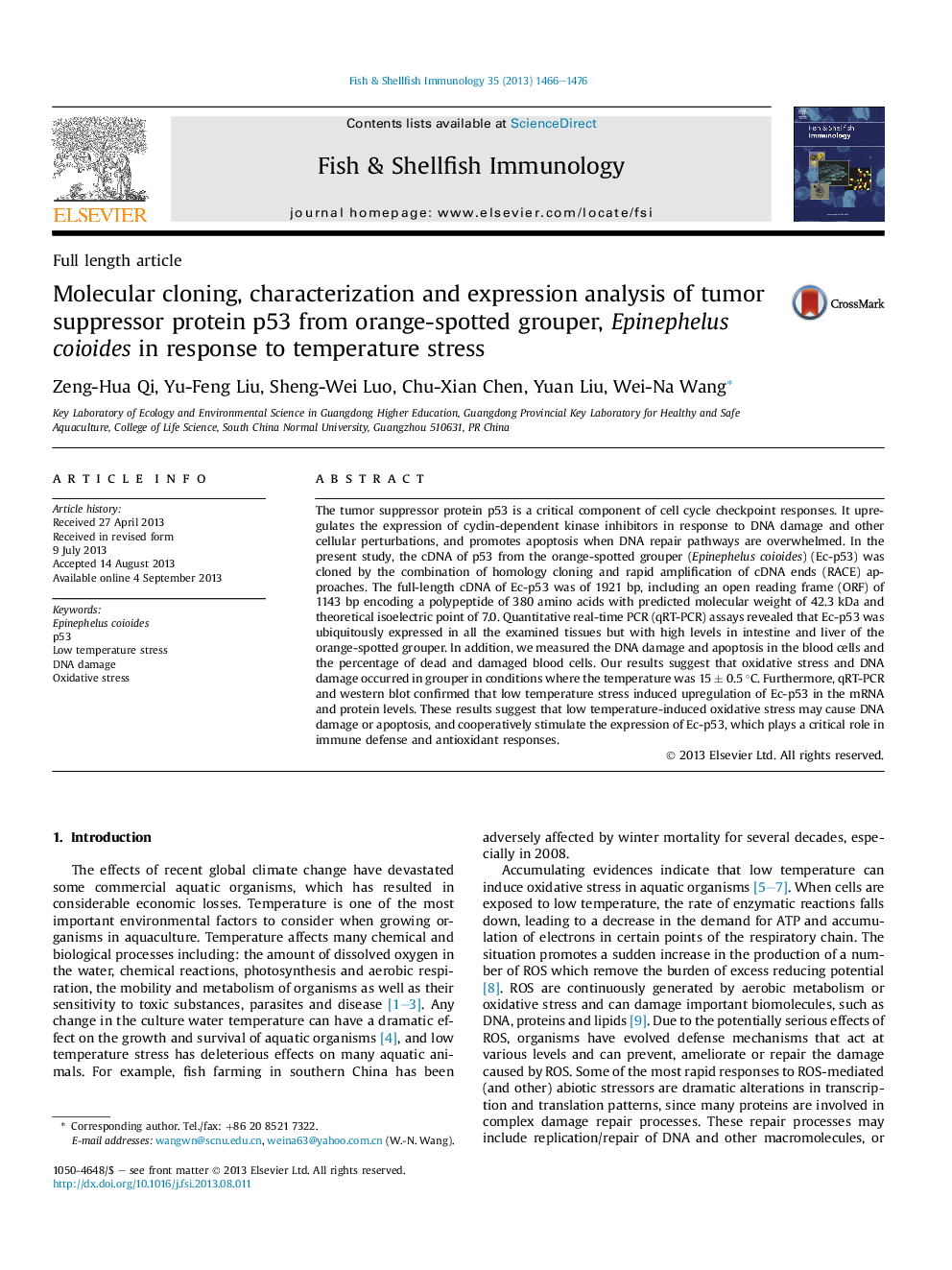| کد مقاله | کد نشریه | سال انتشار | مقاله انگلیسی | نسخه تمام متن |
|---|---|---|---|---|
| 2431717 | 1106770 | 2013 | 11 صفحه PDF | دانلود رایگان |

• We report the molecular characterization and functional of p53 from orange-spotted grouper.
• Ec-p53 expression in the orange-spotted grouper is influenced by temperature stress.
• Low temperature-induced oxidative stress may cause DNA damage or apoptosis.
• Ec-p53 plays a critical role in immune defense and antioxidant responses.
The tumor suppressor protein p53 is a critical component of cell cycle checkpoint responses. It upregulates the expression of cyclin-dependent kinase inhibitors in response to DNA damage and other cellular perturbations, and promotes apoptosis when DNA repair pathways are overwhelmed. In the present study, the cDNA of p53 from the orange-spotted grouper (Epinephelus coioides) (Ec-p53) was cloned by the combination of homology cloning and rapid amplification of cDNA ends (RACE) approaches. The full-length cDNA of Ec-p53 was of 1921 bp, including an open reading frame (ORF) of 1143 bp encoding a polypeptide of 380 amino acids with predicted molecular weight of 42.3 kDa and theoretical isoelectric point of 7.0. Quantitative real-time PCR (qRT-PCR) assays revealed that Ec-p53 was ubiquitously expressed in all the examined tissues but with high levels in intestine and liver of the orange-spotted grouper. In addition, we measured the DNA damage and apoptosis in the blood cells and the percentage of dead and damaged blood cells. Our results suggest that oxidative stress and DNA damage occurred in grouper in conditions where the temperature was 15 ± 0.5 °C. Furthermore, qRT-PCR and western blot confirmed that low temperature stress induced upregulation of Ec-p53 in the mRNA and protein levels. These results suggest that low temperature-induced oxidative stress may cause DNA damage or apoptosis, and cooperatively stimulate the expression of Ec-p53, which plays a critical role in immune defense and antioxidant responses.
Journal: Fish & Shellfish Immunology - Volume 35, Issue 5, November 2013, Pages 1466–1476